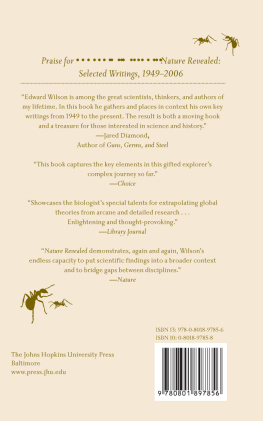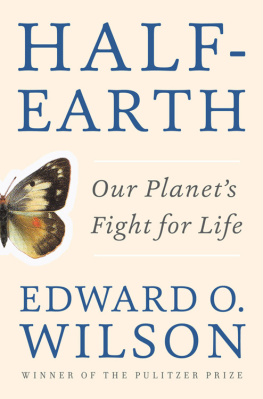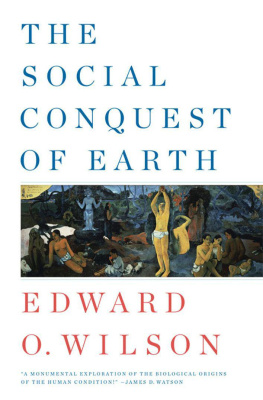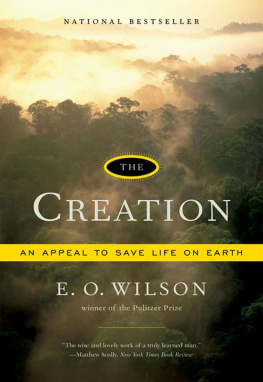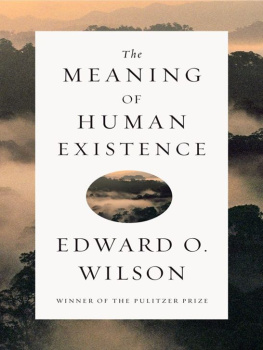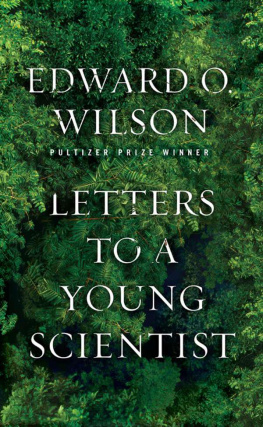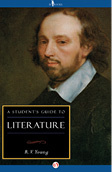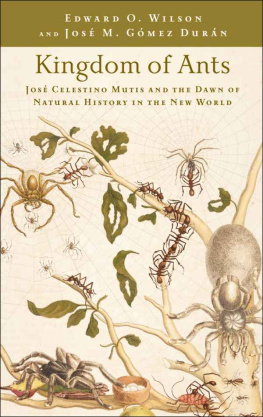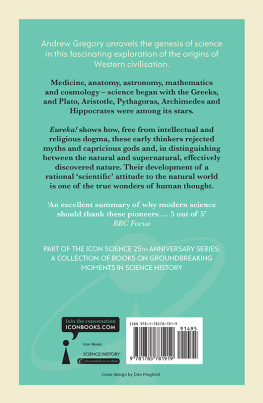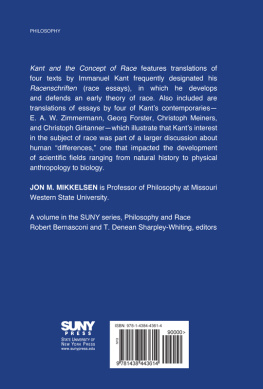Kingdom of Ants
KINGDOM OF ANTS
Jos Celestino Mutis
and the
Dawn of Natural History
in the New World
EDWARD O. WILSON
and
JOS M. GMEZ DURN


2010 Edward O. Wilson and Jos M. Gmez Durn
All rights reserved. Published 2010
Printed in the United States of America on acid-free paper
2 4 6 8 9 7 5 3 1
The Johns Hopkins University Press
2715 North Charles Street
Baltimore, Maryland 21218-4363
www.press.jhu.edu
LIBRARY OF CONGRESS CATALOGING-IN-PUBLICATION DATA
Wilson, Edward O.
Kingdom of ants : Jos Celestino Mutis and the dawn of natural history in
the New World / Edward O. Wilson and Jos M. Gmez Durn.
p. cm.
ISBN-13: 978-0-8018-9785-6 (hardcover : alk. paper)
ISBN-10: 0-8018-9785-8 (hardcover : alk. paper)
1. Mutis, Jos Celestino, 17321808. 2. BotanistsColombiaBiography.
3. BotanistsSpainBiography. 4. AntsResearchSouth America
History18th century. I. Gmez Durn, Jos Mara. II. Title.
QK31.M8W55 2010
595.796092dc22 2010011046
A catalog record for this book is available from the British Library.
Special discounts are available for bulk purchases of this book.
For more information, please contact Special Sales at
410-516-6936 or specialsales@press.jhu.edu.
The Johns Hopkins University Press uses environmentally friendly book materials, including recycled text paper that is composed of at least 30 percent post-consumer waste, whenever possible. All of our book papers are acid-free, and our jackets and covers are printed on paper with recycled content.
Oh Sacred God!
How much time and perseverance
are needed to discover the secrets of nature!
JOS CELESTINO MUTIS, SEPTEMBER 30, 1780
CONTENTS
ONE
Who Was Mutis?
TWO
The Making of an Eighteenth-Century Naturalist
THREE
The Scientific Contributions of Jos Celestino Mutis
FOUR
Mutis Seeks Advice
FIVE
Mutis Begins His Study of Ants
SIX
Ants Are Transported by Ships
SEVEN
Ant Plants and Plant Ants
EIGHT
Mutis Learns about the Mule-Train (Leafcutter) Ants
NINE
Unending Struggles against the Mule-Train Ants
TEN
Ant Wars
ELEVEN
Mutis Solves the Mystery of the Nomadic Pataloas
TWELVE
Mutis Measures the Size of an Army-Ant Colony
THIRTEEN
Mutis Tracks the Armies of Ants
FOURTEEN
Mutis Studies the Gender of Ants and Makes an Amazing Discovery
FIFTEEN
Mutis Other Ants
SIXTEEN
How Good a Scientist Was Mutis?
Kingdom of Ants
PROLOGUE
Late in 1760 Jos Celestino Mutis, a young Spanish physician and botanist, arrived in the New World in what was then called the New Kingdom of Granada. In current political geography, this area constitutes the southern half of Central America and the northern part of South America. Mutis traveled from the Caribbean port of Cartagena de Indias up the Magdalena River on his way to the capital, which lay east on the high plateau of Santa Fe de Bogot. Somewhere on the bank of the Magdalena, probably near the point of disembarkation at Mariquita, he walked into the tropical dry forest that lined the riverbanks. There he began a scientific study of a kind never before attempted. It was so esoteric it might not even have been previously imagined: he made a list of all the species of ants he could find. It was in a sense a blind journey. Of the species he recorded, two kinds of the arriera (mule-train) ants had names the local people used. The rest he made up out of thin air. His list contained twelve species.
Thus began the earliest extended scientific program in entomology in the New World. In the four decades that followed, during a distinguished career as the first scientist and natural philosopher in what is now the nation of Colombia, Mutis accumulated a large amount of information on ants, and he wrote two books about his findings. Unlike his botanical research, both of these treatises were lost, and during the two centuries following Mutis death in 1808, the substance of his extensive research was mostly forgotten. But not completely. That Mutis had done such work was known among scholars in Colombia and Spain in the nineteenth and twentieth centuries.

List of ant species in Jos Celestino Mutis handwriting, with English translations (document catalogued as Real Jardin Botnico de Madrid, Fondo Documental Jos Celestino Mutis, III, 11, 1, 20).
He put the scattered pages in order, arranged them into a coherent series, and published them. Of the 1,200 published pages in the Alba collection, more than 100, inserted among Mutis botanical observations, describe his findings. This material, rich in detail, amounts to Mutis original field notes. In this work, for the first time, we have undertaken to reconstruct the substance and story of what this fascinating figure discovered. In doing so, we hope to reveal something about the dawn of natural history research in the New World.
. Real Jardn Botnico de Madrid, Fondo Documental Jos Celestino Mutis, III, 11, 1, 20.
. Guillermo Hernndez de Alba, comp. and ed. Diario de observaciones de Jos Celestino Mutis (17601790), 2 vols., Instituto Colombiano de Cultura Hispnica (Bogot: Editorial Minerva, 19571958; new ed., 1983).
CHAPTER 1
Who Was Mutis?
Today, Jos Celestino Bruno Mutis y Bosio is known to few outside of Colombia and Spain. Even there, his name rings familiar mostly to historians of the Spanish colonial era and to botanists specializing in the Neotropical flora. Yet this eighteenth-century scientist, Spanish by birth and Colombian by adoption, deserves a place in the explorers pantheon of the New World. His was the broadest in education and scholarly research of all the pioneer naturalists of South America, save only the revered Alexander von Humboldt (17691859)whom Mutis preceded by a full generation.
Mutis forty-eight-year stay in Colombia, spanning most of his adult life, was far longer than Humboldts four-year journey across northern South America. It vastly exceeded the two years artist and naturalist Maria Sibylla Merian (16471717) spent in the Dutch colony of Suriname, and it dwarfed the seven months sojourn in Suriname by Carl Linnaeus apostle David Rolander (17251793).
To the north, a number of explorers and collectors made important contributions on the fauna and flora of the West Indies. They included Gonzalo Fernndez de Oviedo y Valds (14781557) in the sixteenth century and in the seventeenth and eighteenth centuries, James Harlow (16601696), Joseph Donat Surian (?1691), James Reed (collected during 16821693), Hans Sloane (16601753), Charles Plumier (16461704), Mark Catesby (16821749), Jean Baptiste Ren Poupp Desportes (17041748), Patrick Browne (17201790), and Nikolaus Joseph Jacquin (17271817). Browne published his influential The Civil and Natural History of Jamaica in 1756, and Jacquin published the even more taxonomically important
Next page
